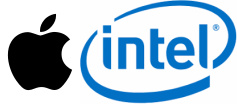Two major announcements attracted general attention over the past couple of weeks; and many more interesting stories poured in from both industry and academia. Let’s take a look at some of them.
Apple to acquire Intel’s smartphone modem business
As widely reported by many media outlets, on July 25 Intel and Apple announced an agreement for Apple to acquire the majority of Intel’s smartphone modem business. Approximately 2,200 Intel employees will join Apple, along with intellectual property, equipment and leases. The transaction, valued at $1 billion, is expected to close in the fourth quarter of 2019, subject to regulatory approvals and other customary conditions. Consistent with Apple’s strategy, the deal will allow the Cupertino tech giant to gradually become independent from external suppliers on this key technology; Intel, on its part, declared last April the intention to exit the 5G smartphone modem business citing “no clear path to profitability.”
Alibaba introducing its own RISC-V-based processor
Dubbed Xuantie 910, the processor recently announced by Alibaba Group’s chip subsidiary, Pingtouge Semiconductor, is based on sixteen RISC-V cores and manufactured on a 12nm process. As reported by EETimes, Alibaba claims this to be the most powerful RISC-V based processor, achieving 7.1 Coremark/MHz at 2.5GHz clock. New features enabling this performance level include a 12-stage pipeline and the addition of fifty instructions. With this move, Alibaba joins the other so-called “hyperscalers” (Internet giants) that have already developed their own chips. Many Chinese media outlets, however, have interpreted this announcement in the context of current trade tensions, with China striving to be independent from US technologies.








